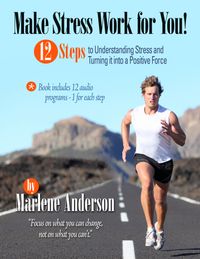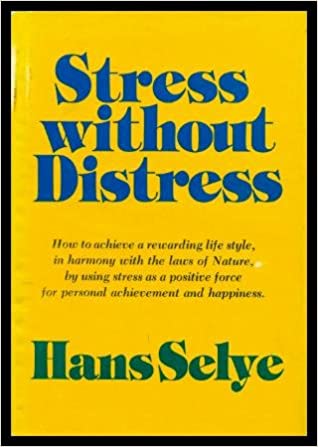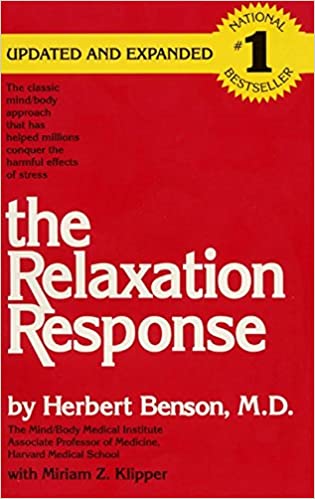Listen to this episode of the Focus With Marlene podcast
During this pandemic, I have had conversations with many people. Everyone is feeling stressed due to prolonged isolation and restrictions.
But for some, that stress is far worse than for others. What makes the difference?
 In my book, Make Stress Work for You: 12 Steps to Understanding Stress and Turning it into a Positive Force, I talk about the difference between good stress (eustress) and bad stress (distress). As you read and listen to the audio of each of the steps, you will learn how you can take charge of the stress in your life.
In my book, Make Stress Work for You: 12 Steps to Understanding Stress and Turning it into a Positive Force, I talk about the difference between good stress (eustress) and bad stress (distress). As you read and listen to the audio of each of the steps, you will learn how you can take charge of the stress in your life.
While stress is universal and everyone experiences it, it is also very personal. What stresses one person may be an exhilarating experience to another. Consider sky diving or swimming. In the Study Guide and Personal Application that accompanies this book, the questions presented can help you understand the sources of your personal stress.
We can’t live without stress nor do we want to. It is an essential part of living. But we can make it work for us and not against us.
What stress is and how it impacts our lives
If we use the analogy of a car and gasoline, we could say we are the vehicle and stress is the gas – the source of energy that drives that car. We are behind that wheel, and we can determine where we will go and how we will use that energy.
Cars run effectively and smoothly for long periods of time if they are properly taken care of and maintained. If they are not, your car soon breaks down. Just like your car, if you don’t take care of or maintain your mind and body, you will soon break down.
We were designed to adapt to the world around us.
 As Dr. Hans Selye, renowned scientist for his work on stress, and recipient of two honorary doctorates, wrote in his book, Stress Without Distress, “Stress is the nonspecific response of the body to any demand made upon it.”
As Dr. Hans Selye, renowned scientist for his work on stress, and recipient of two honorary doctorates, wrote in his book, Stress Without Distress, “Stress is the nonspecific response of the body to any demand made upon it.”
Stress is that adaptive ability that allows us to adjust to any new situation, whether it is enjoying the grandkids, going to work, raising our families, cheering at a football game, or responding to a threat. If we couldn’t adapt, we wouldn’t be able to respond to life – mentally, emotionally, socially or physically.
Stress can be both motivating and energizing.
When it is working for us, we can set goals, plan our careers, enjoy life, solve problems, and live life to the fullest. When it is working against us, however, we soon become ill and worn down.
We are given a certain amount of adaptive ability at birth to use throughout our lifetime to make the adjustments required to live. When that storehouse of adaptive ability is used up, however, we don’t get any more.
Although we have no control over the amount of adaptive ability we are born with, we do have considerable control over how we use it.
The human body is extremely resilient and flexible.
Even when high levels of stress extend for longer periods of time, we are still able to cope and rebound. However, when we don’t find a way to resolve the cause of our stress, and we remain stressed for longer and longer periods of time without relief, we will become distressed.
When that happens, our sleep will be impacted, and we won’t get the rest we need. It becomes more and more difficult to relax, and we find ourselves on a downward spiral of stomach or gastrointestinal problems, headaches, hypertension, irritability, and looking for short-term fixes like drugs, alcohol, or food. Our heart seems to be constantly racing, our hands and feet are often cold or clammy and we use social media as a diversion or quick fix.
We were made to adapt to whatever life throws at us.
We have the ability to respond to difficult and challenging situations. But when those demands become overwhelming, we become overloaded and fatigued. Normal stress, which activates and energizes us, can gradually become dis-stress when we are constantly geared up for action of some kind but there is no way to use that energy source. Then it begins to work against us.
Here are some things we know about the effects of stress:
- It is estimated that around 75% of doctor’s visits are attributed to high or prolonged levels of stress.
- Stress contributes to heart disease, high blood pressure, strokes, and other illnesses.
- Stress contributes to the development of alcoholism, obesity, suicide, drug addiction, cigarette addiction and other harmful behaviors.
- Tranquilizers, antidepressants, and anti-anxiety medications account for many prescriptions written in the United States each year.
- Prolonged stress exhausts the adrenal glands, depletes the nervous system, and can cause symptoms such as ulcers, chest pains, headaches, depression and finally exhaustion. It also lowers the immune system which protects us from many serious diseases.
- Recurring health problems of any type can be a signal that we are under high levels of stress that we need to pay attention to. When the body is highly stressed for too long, it gets out of balance and that imbalance is expressed with disease.
Stress log
Keep a stress log for a week and mark down those times when you are feeling stressed, under pressure and always tense.
- What signs and symptoms, both physical and emotional, were you experiencing when stressed?
- Was this an ongoing stress?
- What patterns of thinking or responding to life kept you more stressed?
Ask yourself what you can do to reduce your stress levels.
 That might be as simple as refusing to let irritations ruin your day, or becoming more in charge of your thoughts, laughing off things that are really unimportant.
That might be as simple as refusing to let irritations ruin your day, or becoming more in charge of your thoughts, laughing off things that are really unimportant.
Even when you’re completely stressed out, you can help your body return to a normal relaxed state.
Learning to respond differently to life’s challenges can keep stress levels down and have a profound difference overall in your health and enjoyment in life.
Dr. Herbert Benson, M.D., author of The Relaxation Response, details the importance of learning how to relax to maintain your health.
Because it is often difficult to put that into practice, I have recorded a Relaxation CD (available for purchase on my website) that enables you to simply listen and allow yourself to let go of tension and relax.
We can’t avoid stress. Nor do we want to.
What we do want to do is find ways to reduce distress and activate the stress that helps us accomplish goals.


